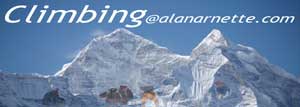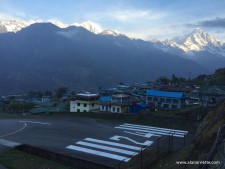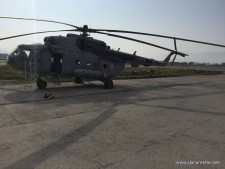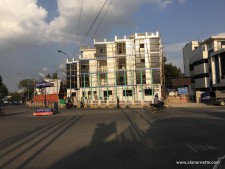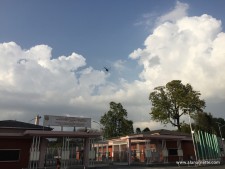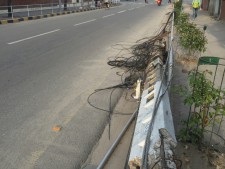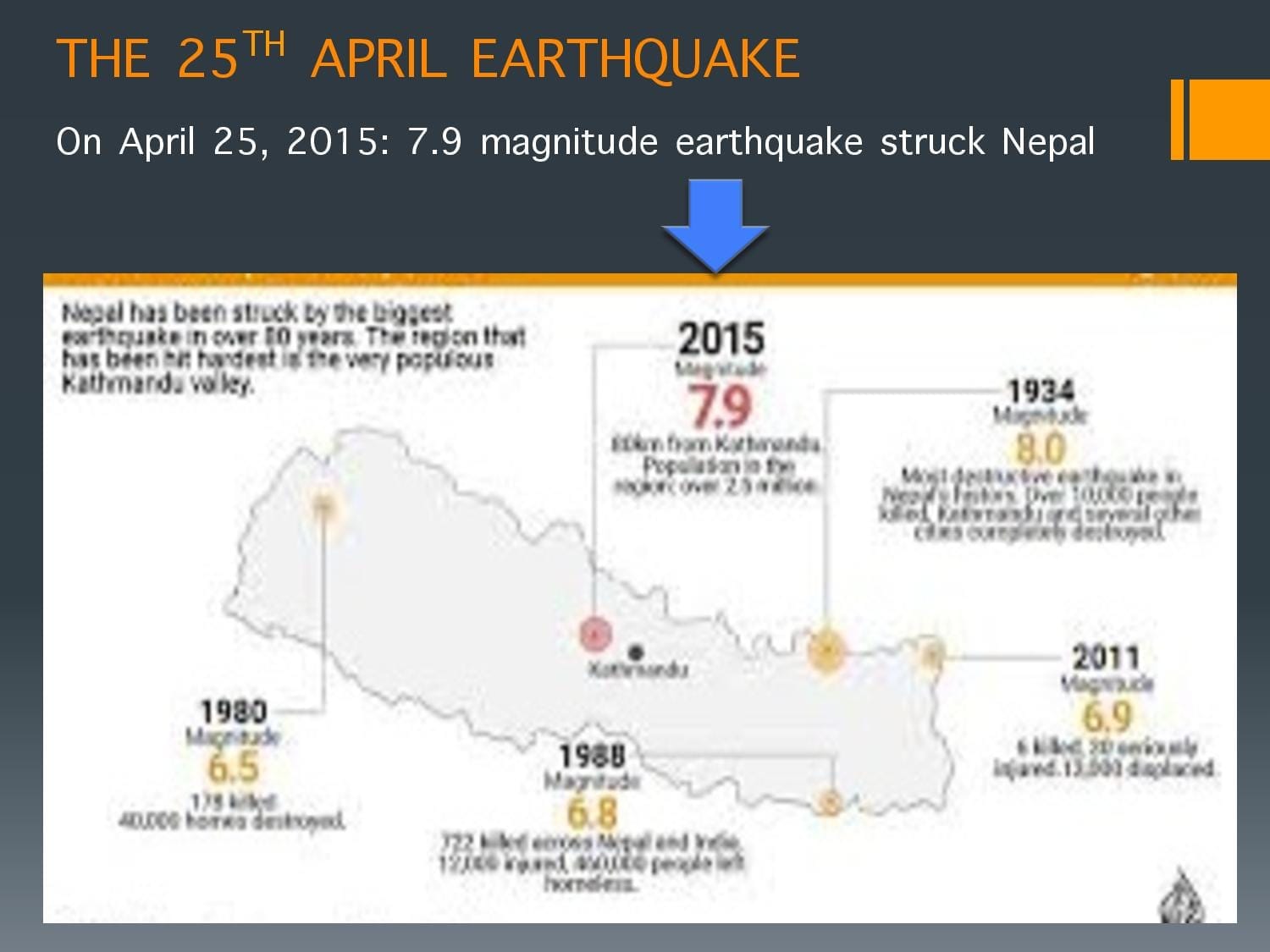 My flight from Lukla to Kathmandu was uneventful, in fact more on time than many of my last trips.
My flight from Lukla to Kathmandu was uneventful, in fact more on time than many of my last trips.
My gratitude of being met by US Special Forces and a dedicated team from Global Rescue services has quelled any concerns of personal impact. I know someone in the United States is looking after her citizens.
All I can think about is the carnage at Everest Base Camp, the loss of Eve and the impact on the almost 8000 throughout Nepal, the unseen damage and the fact that the world’s attention and media will soon turn to the latest “man bites dog” story bothers me.
As I leave the land where a down jacket, gloves and skull cap is required, I enter the intermediate season between harsh winter and steady monsoon rains.
I do think about Everest. Reports of climbers being stranded are supplied to feed egos, the basis in reality is tenuous at . Reports of the horrors at base camp are real.
Rocks flew into humans at supersonic speeds, they never had a chance. Doctors there to climb or serve were pressed into duty out of service or deep commitment. Everyone there was impacted from carrying corpses, picking up body parts, communicating with loved ones back home, greeting helicopters with climbers rescued from the Western Cwm – yes, it was horrific and not be be glorified, capitalized or minimized – it was a war zone and most there rose to the challenge and will be changed forever.
I flew out of Luka basically on time this morning and arrived at the Kathmandu domestic airport with no issues, in spite of the horror stories told a few days earlier. I don’t doubt them, only acknowledge that things are getting back to normal. I am fortunate and know it.
I walked the streets of the capital this Saturday morning and afternoon, it is subdued – due to the earthquake or because it is Saturday – I don’t know. Huge helicopter flew overhead. Parked at the airport, they represented neighboring countries, generously giving aid.
I go into a coffee shop, it is crowded. Ladies looking at men, they look back with the awkwardness they do when in pursuit. The manager welcomes me with a big smile, offers a menu with grace. I order a danish and coffee even though I am not hungry.
Power line poles are down, walls lay strewn, police and military collect stray bricks off fallen walls to give the impression that all is well – it is not.
Remote villages are destroyed, yet to be reached, the citizens sending urgent appeals for medical assistance, food – help. As always in these crisis – sunami, earthquakes, fire – the remote places suffer the most.
The world news media covers the large headlines well, the small personal stores that are buried deep, as the Himalayan hillsides are left out. This is what Nepal really entails – a tiny village of 20 family members, perhaps a monastery, a male who leads the clan, making a living off a cow, potatoes, daily prayer. This is Nepal.
I don’t blame the media, it is hard. The public’s attention short – attracted to the next story. Just like in Haiti, a firestorm in Arizona, a landslide in France. We are served what we request.
What will be the future of Nepal? The media has done a nice job of quantifying the problem: 6,700 dead, countless homeless, billions to repair the country … overall about the cost of an aircraft carrier, or “defense” systems by the world super powers to bring this country, and others like it, to a point of stability, or even the ability of mothers to give birth to a healthy child.
I was in Nepal to climb mountains – a sport, a country and a people I love – deeply.
Today, I feel lost. Can I help? Of course, I can move stones, carry water or help dig dirt. Is that enough? Of course not. Those who are doing this, help others but also, do it for themselves – thank you. But much more needs to be done for a sustainable solution.
The government of Nepal must transform to put it’s citizens first, and gain – personal or political – far down the list. Hardly a new request for any leadership – United States, United Kingdom or Zambia. The Maoist uprising got what it wanted, reminding us of the adage of be careful what you wish for. They influence the country and it’s people are dying.
Nepal is often romanticized as the land of peace and tranquility. The hard reality is that Nepal consist of many ethnicities. Nepal is known to Westerners as the Sherpa people yet they are a fraction of the population and enjoy a disproportionate income and lifestyle compared to the nearby India or Pakistan.
That said, it does not reduce the need to help, to improve; once again it is up to their government to lead. But the need for foreign help. is urgently need – money, not clothes or perishable food. If you know of a reliable destination for you charitable donation, please give it – just do your homework. Doctors without Boarders, the Juniper Fund – they are solid.
As I walk the streets of the capital, it is not representative just like Paris, London or New York for their countries. Kathmandu is not a Bob Seiger song. Yes they are citizens of that country but there is so much more.
Our planet is not selective, it shifts and moves as needed. Tectonic plate movement is an everyday part of the adjustment. Sometimes, we get in the way.
I hurt for all the people of Nepal. The lowlands, highlands, city and abroad.
Memories Are Everything
Alan
